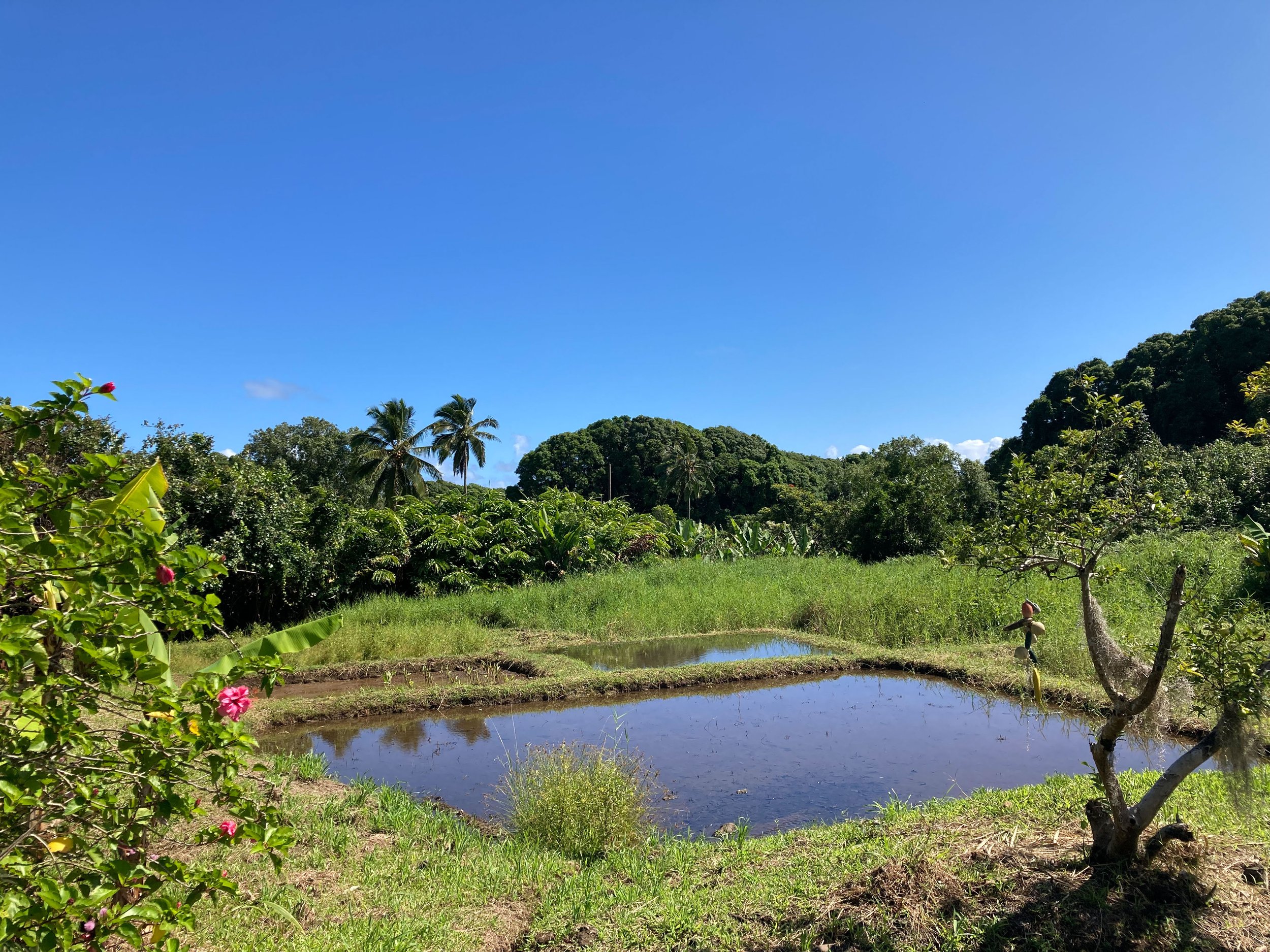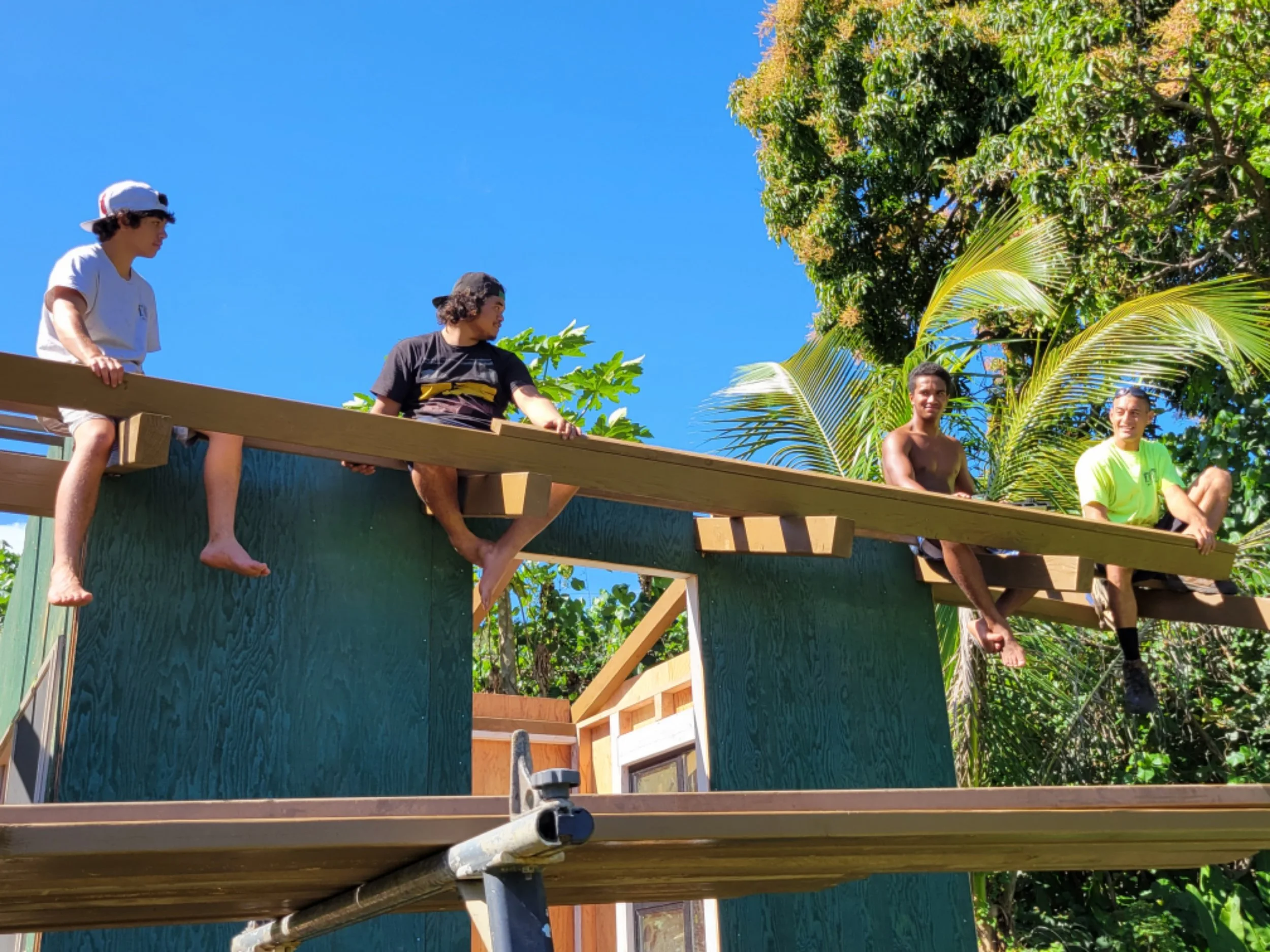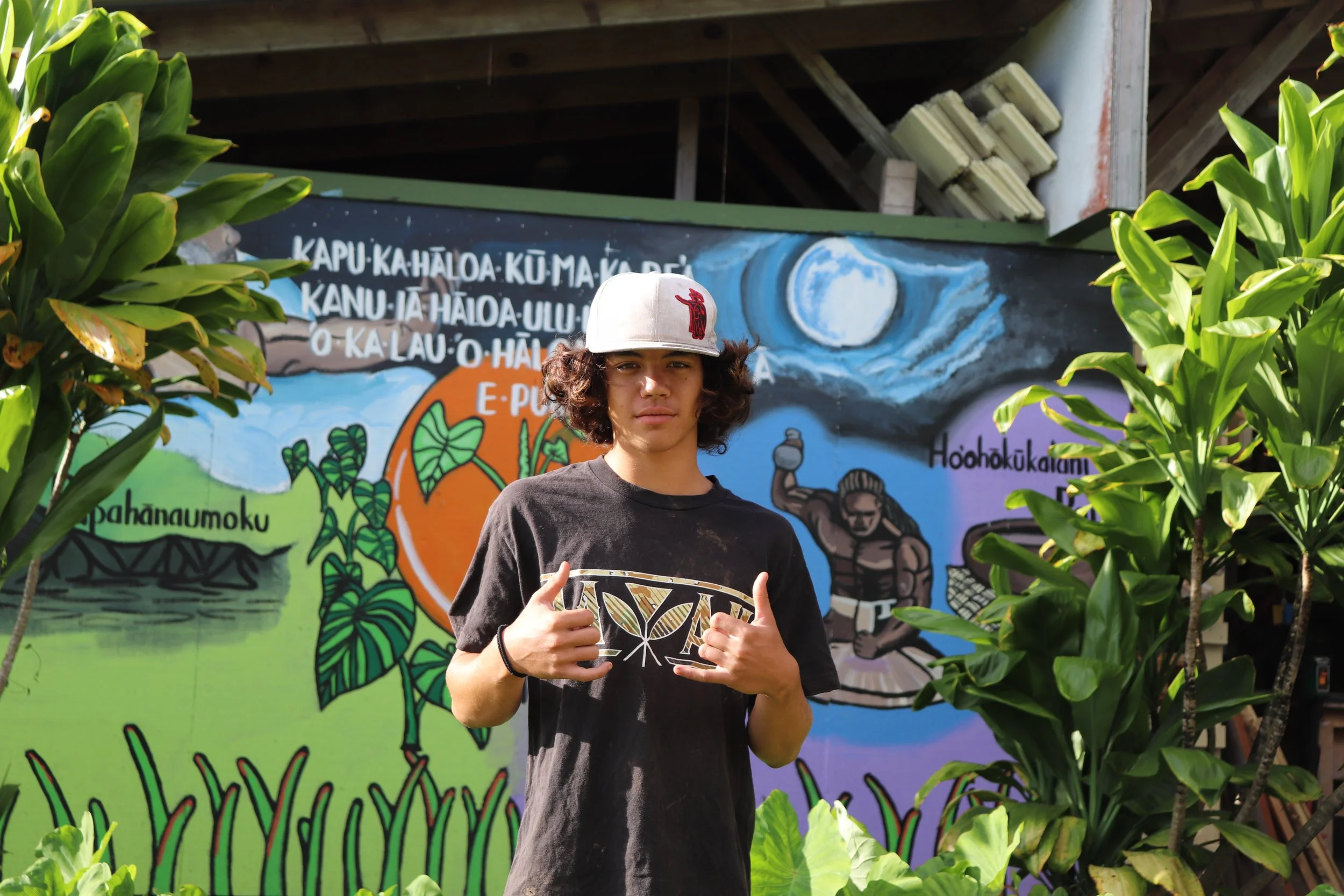Loʻi kalo farming with alohi
a student apprentice in our mālama hāloa program reflects and shares manaʻo
Alohi in the loʻi kalo on his ʻohana ʻāina
Alohi started with Ma Ka Hana Ka ʻIke as a sophomore at Hāna School. Since then, he has been a student apprentice within the Mālama Hāloa program.
In 2021, Alohi began the process of restoring loʻi kalo (wetland taro) on his ʻohana ʻāina with the kākoʻo (support) of Mālama Hāloa and fellow apprentices, graduate teachers, and staff, as well as other East Maui kalo farmers.
“I thrive with hands-on learning. And I wanted to learn to work,” Alohi says.
“My dad use to farm kalo and I would help him when I was young. I wanted to try doing this by myself.”
Today, five loʻi kalo have been restored on the ʻāina. There are 15 altogether, and by the time Alohi graduates from Hāna School in 2023 he strives to have all of them opened and restored.
Alohi adds, “I wanted to see these loʻi opened; they weren't since my dad last opened them.”
Loʻi kalo opened on the ʻohana ʻāina
Monday through Friday, Alohi's curriculum is ʻāina-based and rooted in ʻike kūpuna (knowledge of our elders), kuleana, and service.
Alohi has expanded his knowledge of soil science, mapping, planting, harvesting, monitoring freshwater levels and temperatures, ʻauwai (ditch or canal) maintenance, cleaning, cooking, and preparing kalo, and so much more.
“I also want to create a small business as I get older, and build that up,” he says regarding kalo farming. “I would like to work the taro patches all day. That's a nice dream.”
As he enters his senior year, Alohi will be learning more about entrepreneurship and building a small business from the ground up.
His curriculum will include important components such as distribution, market opportunities, and financial literacy.
Alohi and the Building Program crew during the construction of his farm shed
In 2021, Alohi also learned and participated in the entire process of building a farm shed on his ʻāina with the guidance and expertise of our Building Program apprentices, graduate teachers, and program lead.
This farm shed will be used for his farming tools and materials.
Alohi today, in front of a dry-land kalo patch at Hāna School
Through his participation in Mālama Hāloa, Alohi also passes knowledge learned onto his peers.
To the younger generation he says, “You connect with the ʻāina, and that connection never leaves no matter where you go. This is what Mālama Hāloa taught me.”
Mahalo nui no ka hana maikaʻi, e Alohi!




